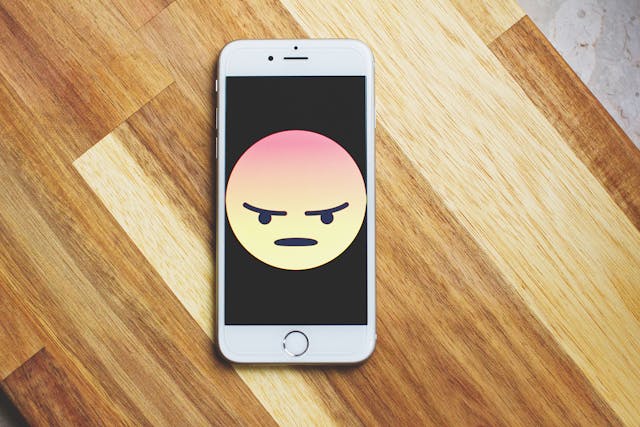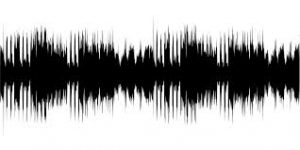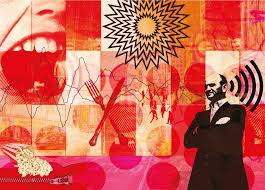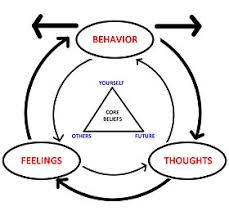 Stephen Geller Katz LCSW-R
Stephen Geller Katz LCSW-R
Misophonia Cognitive Retraining Therapy
 Stephen Geller Katz LCSW-R
Stephen Geller Katz LCSW-RMisophonia Cognitive Retraining Therapy
Misophonia Cognitive Retraining Therapy, as featured on the MTV True Life episode: “I Have Misophonia” premiering Friday, December 16th, 7:00 PM EST. See Clip >
|
|
|
| Moderate to severe anxiety triggered by chewing sounds, including: | ||
|
|
|
You may also be affected by visual stimuli, such as repetitive foot or body movements, fidgeting or movement you observe out of the corners of their eyes. Intense anxiety, rage and avoidant behavior may develop as a result of misophonia.
 * Do you feel your family and friends don’t understand how much you suffer?
* Do you feel your family and friends don’t understand how much you suffer?
* Do you often feel you can just suffer through a social event where there is eating present only to find that you must “escape” before you have a panic attack?
* Do you find that some people are at first understanding and make some efforts not to make the triggering sounds in front of you, but soon forget and constantly have to be reminded, causing you to feel angry, anxious and depressed?
* Are you avoiding social activities that you enjoy because of the misophonia?
* Are you fearful of losing your job and/or is the misophonia effecting your job performance?
You may be a candidate for Misophonia Cognitive Retraining Therapy, or MCRT.
Stephen Geller Katz, LCSW-R, with over 20 years of clinical experience, a New York University graduate, developed Misophonia Cognitive Retraining Therapy and founded Misophonia Cognitive Center™ in response to the growing number of people with Misophonia coming to his private practice from audiologists and ENTs. He discovered that by helping people to retrain and reinterpret the thoughts around their Misophonia, anxiety and depression symptoms began to improve. But even more important so did the Misophonic trigger response.
Here are some daily management tips for misophonia that can help individuals cope with their triggers and reduce the emotional impact of this condition. Managing misophonia on a daily basis can be challenging, but implementing effective strategies can significantly improve quality of life.

Misophonia, a condition characterized by strong emotional reactions to specific sounds, can disrupt daily activities and interactions. These reactions can range from irritation to intense anger or panic. Understanding the nature of misophonia and how it affects you is the first step in developing effective management strategies.
One of the most effective ways to manage misophonia is to create a controlled environment. This involves minimizing exposure to trigger sounds and creating a safe, comfortable space.
Having a set of coping mechanisms can help you manage your reactions to trigger sounds more effectively.
Effective communication with family, friends, and colleagues is essential for managing misophonia. Educating others about your condition can help them understand and support you better.

Seeking professional treatment can provide long-term strategies and tools for managing misophonia.
Daily management of misophonia involves a combination of creating a controlled environment, developing coping mechanisms, communicating effectively with others, and seeking professional treatment. By implementing these strategies, individuals with misophonia can improve their quality of life and reduce the impact of trigger sounds.
Misophonia treatment specialist Stephen Geller Katz at the Misophonia Cognitive Center™ offers specialized online treatment services to help individuals manage misophonia.
Stephen Katz, LCSW
646-598-2251
• Convenient online sessions
• Dr. Katz is multi-lingual
For more information about Dr. Katz and his Misophonia & Tinnitus treatment services, visit https://www.misophoniacognitivecenter.com/.
 In this blog, we’ll explore ways to live well with misophonia, focusing on self-care and stress management. Misophonia, a condition characterized by intense emotional reactions to specific sounds, can pose significant challenges to daily life. However, with the right self-care strategies and stress management techniques, individuals with misophonia can lead fulfilling lives.
In this blog, we’ll explore ways to live well with misophonia, focusing on self-care and stress management. Misophonia, a condition characterized by intense emotional reactions to specific sounds, can pose significant challenges to daily life. However, with the right self-care strategies and stress management techniques, individuals with misophonia can lead fulfilling lives.
Self-care plays a vital role in managing misophonia and its associated stressors. It involves taking intentional steps to prioritize your well-being and emotional health.
Understanding your specific trigger sounds is the first step in managing misophonia. Keep a journal to track the sounds that evoke emotional reactions.
Designate trigger-free zones in your home where you can retreat when needed. Ensure these spaces are calm and comfortable.
Mindfulness meditation and relaxation techniques can help you stay grounded and reduce emotional responses to trigger sounds.
Communicate your needs and boundaries to family members and loved ones, helping them understand your condition better.
Consider working with a misophonia specialist or therapist who can provide tailored coping strategies and treatment options.
Practice deep breathing exercises to calm your nervous system and reduce stress when triggered.
Learn progressive muscle relaxation techniques to release physical tension and promote relaxation.
CBT can be effective in changing thought patterns and behaviors related to misophonia-triggered stress.
Engage in regular physical activity to release endorphins and reduce overall stress levels.
Joining a misophonia support group can provide a sense of community and a platform to share experiences and coping strategies.
To live well with misophonia and effectively manage associated stress, reach out to Stephen Geller Katz (bio). Dr. Katz, a licensed clinical social worker and founder of the Misophonia Cognitive Center™, specializes in the treatment & management of misophonia.
Dr. Katz offers online sessions, making support and treatment accessible worldwide. Call today for a consultation.
MISOPHONIA COGNITIVE CENTER™
Stephen Geller Katz LCSW-R
646-585-2251
In this blog post, we will explore the benefits of mindfulness for misophonia management. Misophonia is a condition that causes a strong emotional response to certain sounds, known as trigger sounds. This response can lead to feelings of anger, disgust, and anxiety, which can significantly impact daily life. Misophonia management can be challenging, but mindfulness techniques can be helpful for managing trigger sounds and reducing overall stress and anxiety.

Mindfulness is a technique that involves paying attention to the present moment, without judgment. This technique can be helpful for individuals with misophonia, as it encourages awareness of trigger sounds and emotional reactions, without getting caught up in them. Additionally, mindfulness can help reduce overall stress and anxiety, which can improve well-being and overall quality of life.
Practicing mindfulness can have several benefits for individuals with misophonia, including:
Mindfulness can improve awareness of trigger sounds and emotional reactions, allowing individuals to recognize and manage them effectively. By practicing mindfulness, individuals can learn to observe trigger sounds without reacting impulsively, reducing the emotional impact of misophonia.
Misophonia can cause significant stress and anxiety, which can impact overall well-being and quality of life. Mindfulness can help reduce stress and anxiety, improving overall well-being and reducing the impact of misophonia on daily life.
Mindfulness can also help individuals with misophonia increase emotional regulation, allowing them to manage their emotional reactions more effectively. By practicing mindfulness, individuals can learn to identify and regulate their emotions, reducing the impact of misophonia on daily life.
Incorporating mindfulness into misophonia management can be challenging, but there are several strategies that can help individuals develop a mindfulness practice.
Starting small can help individuals build a mindfulness practice gradually. Start with a few minutes of mindfulness meditation each day and gradually increase the length of practice over time.
Guided meditations can be helpful for individuals who are new to mindfulness practice. There are many apps and online resources that offer guided meditations for free.
Mindfulness can be practiced during daily activities, such as eating or walking. Focus on the present moment and observe thoughts and emotions without judgment.

Misophonia can significantly impact daily life, but with the right strategies and support, individuals can improve their ability to manage trigger sounds and reduce overall stress and anxiety. Mindfulness techniques can be helpful for individuals with misophonia, allowing them to develop greater awareness of trigger sounds and emotional reactions, reduce stress and anxiety, and improve emotional regulation. Incorporating mindfulness into misophonia management can be challenging, but with the right guidance and support, it is possible to develop a mindfulness practice that works for you.
If you or a loved one is struggling with misophonia, incorporating mindfulness techniques into your management strategy can be helpful. At the MISOPHONIA COGNITIVE CENTER™, Stephen Geller Katz LCSW-R offers online Cognitive Retraining Therapy (CRT) sessions that incorporate mindfulness techniques for managing misophonia triggers.
Don’t let misophonia control your life. Take control of your condition with mindfulness techniques. Contact Dr. Katz today to schedule an online consultation.
MISOPHONIA COGNITIVE CENTER ™
Stephen Geller Katz
19 West 34th Street Penthouse Floor
New York, NY 10001
646-585-2251
In this blog post, we will explore misophonia and sleep and provide tips for a more restful night. Misophonia is a condition that causes a strong emotional response to certain sounds, known as trigger sounds. This response can lead to feelings of anger, disgust, and anxiety, which can significantly impact daily life. Misophonia can also impact sleep, as trigger sounds can cause disruptions and make it challenging to fall and stay asleep.

Misophonia can impact rest in several ways. Individuals with misophonia may struggle to fall asleep due to exposure to trigger sounds, or they may wake up frequently during the night due to these sounds. Additionally, the emotional response to trigger sounds can lead to feelings of anxiety, which can impact overall sleep quality.
Managing misophonia during sleep can be challenging, but there are several strategies that can help individuals improve their ability to fall and stay asleep.
Using white noise or earplugs can be an effective way to reduce exposure to trigger sounds during sleep. White noise can help mask trigger sounds, while earplugs can block out external noise.
Establishing a sleep routine can help individuals with misophonia improve their ability to fall asleep. Stick to a consistent sleep schedule, avoid caffeine and alcohol before bedtime, and create a relaxing sleep environment to promote restful sleep.
Practicing relaxation techniques, such as deep breathing or progressive muscle relaxation, can help individuals manage anxiety related to misophonia and improve the overall quality of your nightly sleep.

If misophonia is significantly impacting sleep quality, consider seeking professional help. A licensed therapist can provide support and guidance on managing your misophonia triggers.
Misophonia can significantly impact sleep quality, but with the right strategies and support, individuals can improve their ability to fall and stay asleep. At the MISOPHONIA COGNITIVE CENTER™, Stephen Geller Katz LCSW-R offers online Cognitive Retraining Therapy (CRT) online sessions for individuals struggling with misophonia.
If you or a loved one is struggling with misophonia related disruptions in your daily life, don’t hesitate to reach out today for support and to schedule an online consultation.
MISOPHONIA COGNITIVE CENTER ™
Stephen Geller Katz LCSW-R
19 West 34th Street Penthouse Floor
New York, NY 10001
646-585-2251
In this blog post, we will explore how to manage misophonia in the workplace effectively. Misophonia is a condition that causes a strong emotional response to certain sounds, known as trigger sounds. This response can lead to feelings of anger, disgust, and anxiety, which can significantly impact daily life. Misophonia can also impact work life, as trigger sounds can cause distractions and make it challenging to focus.

Managing misophonia in the workplace can be challenging, but there are several strategies that can help individuals reduce exposure to trigger sounds and improve their ability to focus and be productive.
The first step in managing misophonia in the workplace is to identify trigger sounds. Make a list of trigger sounds that you encounter at work, and try to identify when and where you are most exposed to these sounds. This will help you develop strategies for minimizing exposure to trigger sounds.
Noise-canceling headphones can be an effective way to reduce exposure to trigger sounds in the workplace. These headphones work by blocking out external noise, which can help individuals focus and be more productive. Additionally, wearing headphones can signal to coworkers that you are busy and not available for conversation, reducing the likelihood of exposure to trigger sounds.
If trigger sounds are impacting your ability to work, consider speaking to your manager about the issue. Explain that you have misophonia and identify specific trigger sounds that are causing distractions. Discuss possible solutions, such as moving to a quieter workspace or allowing you to wear noise-canceling headphones at work.

Taking breaks can be an effective way to manage misophonia in the workplace. Taking a short walk or stepping outside for a few minutes can help reduce stress and anxiety and provide a break from trigger sounds.
Practicing relaxation techniques, such as deep breathing or meditation, can help individuals manage misophonia in the workplace. These techniques can help reduce stress and anxiety and improve overall well-being.
Managing misophonia in the workplace can be challenging, but with the right strategies and support, individuals can reduce exposure to trigger sounds and improve their ability to focus and be productive. At the MISOPHONIA COGNITIVE CENTER™, Stephen Geller Katz LCSW-R offers online Cognitive Retraining Therapy (CRT) sessions for individuals struggling with misophonia.
If you or a loved one is struggling with misophonia, don’t hesitate to reach out to MISOPHONIA COGNITIVE CENTER™ for support. Contact us today to learn more about our services and schedule a convenient online consultation.
MISOPHONIA COGNITIVE CENTER ™
Stephen Geller Katz LCSW-R
19 West 34th Street Penthouse Floor
New York, NY 10001
646-585-2251
 Do you or someone you know struggle with misophonia? Are you familiar with what the syndrome of misophonia? If so, you may benefit from learning some of the best ways to properly manage this stressful syndrome. To recap, misophonia is a syndrome that causes common and frequent sounds or noises to become increasingly irritating, aggravating, and potentially harmful in the future.
Do you or someone you know struggle with misophonia? Are you familiar with what the syndrome of misophonia? If so, you may benefit from learning some of the best ways to properly manage this stressful syndrome. To recap, misophonia is a syndrome that causes common and frequent sounds or noises to become increasingly irritating, aggravating, and potentially harmful in the future.
People who deal with this can burst out in rage or irritability, have depressed or suicidal thoughts, and become generally panicked when living their daily life. This is because many sounds can trigger the individual with this condition, ultimately leading to discomfort and fear throughout the day. Patients are unaware of when a triggering sound might be apparent. Often times, this leaves people to stay cooped up in their own home, as public can be fearful to them. In order to get over the condition and fears, they must directly be addressed and managed properly. Let’s take a look at some of the best ways to manage symptoms and triggers of misophonia below.
One of the best proven ways to lessen the effects of misophonia is by speaking with a professional psychologist about your conditions in a form of therapy known as cognitive behavioral therapy. Cognitive behavioral therapy, otherwise gone by its acronym of CBT, focuses on the development of associating previously negative triggers and emotions and replacing them with positive, happier connections. This is done by locating the sounds that trigger you and identifying what started your journey with misophonia.
When you’re better able to understand how your condition of misophonia, you’ll be more conscious when your triggers appear. This will allow yourself to take preventative measures and control yourself better.
Whether you’re out and about or at home in the comfort of your own environment, something has the possibility to trigger a misophonia reaction in you. The key to getting through this situation and triggering moment is by remaining calm and understanding what caused the symptom.
For example, it is common for a trigger to lead to rage. If you hear the triggering noise, acknowledge it rather than trying to push it away and take deep breaths. This will help prevent the release of cortisone and adrenaline, both produced in times of stress. The more of these chemicals that are produced, the worse you’ll feel. If you remain calm throughout the negative episode, you’ll be able to control yourself and your emotions more effectively.
If you have a severe case of misophonia, it is important that you stay on top of all of the resources that are available to you. These range from support groups to psychologists and physicians, and even online resources like the Misophonia Institute. These can provide you with information on how to effectively manage your symptoms, and upcoming treatments that may be available to help you. As long as you stay up to date with misophonia knowledge and seek help on how to feel better throughout your daily life, you’ll be aware of how to improve your condition.
If you’re in need of immediate help due to severe symptoms of misophonia, reach out to us here at the Misophonia Cognitive Center in New York City. Steven Katz LCSW is one of the best and can help you identify symptoms and triggers associated with your condition. From here, we can get you the best form of treatment that you’d benefit from. Call us to schedule an appointment today for a visit with the best misophonia treatment center in NYC!
Call Today: 646-585-2251
Do you suffer from misophonia? Are you greatly affected by the sounds that other people find normal? If so, you may benefit from treatment that makes use of earplugs for misophonia. All people who are diagnosed with misophonia suffer differently, so it is difficult to determine what form of treatment would benefit you most. That’s because misophonia is usually developed from environmental factors through your life. This means that no two people are likely to suffer from identical symptoms and triggers, as it relates to how you were raised and how your life has progressed thus far.
If you have misophonia or are wondering if you may suffer from this condition, it is important to speak with a doctor to identify types of treatment that may benefit you most. There are various treatments, thanks to modern technology, that may help you out. They typically work on the grounds of either therapy or preventative measures. By this, we mean that you can look to identify the cause of misophonia in your life, or you can look for ways to reduce your symptoms. One frequent form of treatment that is based off of a preventative measure is the use of earplugs. Let’s take a look at some of the way earplugs may be able to help you below.
People with misophonia are at a constant disadvantage in life, as sound and noises exist everywhere. This greatly increases your chance to experience pain, discomfort, and anxiety throughout your typical day. The more you are able to disregard noise, the better you can feel throughout the day. One of the best ways to do this is through noise-cancelling earplugs. Earplugs allow those with misophonia to focus on short term events. It is important to recognize that wearing earplugs consistently is strongly discouraged because this may make symptoms worse when finally removed. This happens because the human brain thrives on auditory input, so when removed from that sense for a long period of time, senses become more sensitive.
 Depending on how severe your symptoms are, you may benefit from different kinds of earplugs in various situations. There are two common forms that your doctor may recommend for misophonia. The two most recommended kinds include regular earplugs and noise-cancelling headphones. The use of both depend on how severe your symptoms are and the situation you are in. For example, if you have an important exam or need to focus on a short-term event, regular earplugs may help you most. If you are walking outside and would like a longer distraction, but not for too long of a time, wearing noise-cancelling headphones could help. Brands have worked on the ability to block out single-occurrence noises, so this, combined with ambient noise playing through the headphones, can significantly affect the way you’re able to focus over time.
Depending on how severe your symptoms are, you may benefit from different kinds of earplugs in various situations. There are two common forms that your doctor may recommend for misophonia. The two most recommended kinds include regular earplugs and noise-cancelling headphones. The use of both depend on how severe your symptoms are and the situation you are in. For example, if you have an important exam or need to focus on a short-term event, regular earplugs may help you most. If you are walking outside and would like a longer distraction, but not for too long of a time, wearing noise-cancelling headphones could help. Brands have worked on the ability to block out single-occurrence noises, so this, combined with ambient noise playing through the headphones, can significantly affect the way you’re able to focus over time.
If you suffer from misophonia, it is important that you seek treatment from a doctor or medical professional today. They can help you identify your symptoms, triggers, and ways to help your condition progress positively over time. The more you’re able to focus on improving your life rather than living in fear, the better your life will be. Unsure of where to begin? Steven Katz LCSW can lend you a hand. The Misophonia Cognitive Center has treated plenty of individuals who suffer from noise disorders and helped their lives greatly improve. Schedule an appointment with us today for a better life and more comfortable future!
 If you deal with a condition known as misophonia, you are probably familiar with the fear, anxiety, or generalized panic that occurs when triggered by a specific sound or noise that may be apparent in your environment. Until recent medicine and technology, misophonia was grouped in with anxiety disorders, but in recent times it has been diagnosed as a separate disorder. This is because misophonia originates from external noises and stimuli while anxiety usually occurs because of internal expressions and emotions.
If you deal with a condition known as misophonia, you are probably familiar with the fear, anxiety, or generalized panic that occurs when triggered by a specific sound or noise that may be apparent in your environment. Until recent medicine and technology, misophonia was grouped in with anxiety disorders, but in recent times it has been diagnosed as a separate disorder. This is because misophonia originates from external noises and stimuli while anxiety usually occurs because of internal expressions and emotions.
Since being diagnosed as a separate condition for anxiety, different treatments have been available. If you suffer from misophonia and are looking for a way to treat your disorder, cognitive behavioral therapy may be a solid option for you.
Cognitive behavioral therapy, often going by the acronym of CBT, is often regarded as one of the best available treatments for noise disorders like misophonia. This is because it is a form of therapy that helps individuals talk through their problems, as well as work on fixing or altering the way they behave when triggered. Therapists who use cognitive behavioral therapy focus on changing the way their patients feel and think when a trigger is played or acknowledged. This changes their thoughts from a strongly negative perspective to understanding the positive of the situation.
Therapists will help individuals with misophonia in various ways including allowing them to feel what they’re feeling instead of suppressing their emotions. This is because it is widely acknowledged that suppression can directly relate to stronger symptoms and a more negative experience. Hiding your feelings can do more harm than good, so cognitive behavioral therapists work with patients to determine how they can get past their condition.
 When or if your doctor recommends going through cognitive behavioral therapy, you may be concerned about how this would possibly help your condition and symptoms associated with misophonia. Thankfully, there have been studies that show how cognitive behavioral therapy positively impacts misophonia patients. This is because misophonia often begins due to a triggering life experience relating to your environment or upbringing.
When or if your doctor recommends going through cognitive behavioral therapy, you may be concerned about how this would possibly help your condition and symptoms associated with misophonia. Thankfully, there have been studies that show how cognitive behavioral therapy positively impacts misophonia patients. This is because misophonia often begins due to a triggering life experience relating to your environment or upbringing.
CBT therapists can help you identify what has led to your misophonia and work to develop a more positive perspective on the situation. Over time, this will lead to a lessening of your symptoms when exposed to potential triggers. The use of cognitive behavioral therapy can strongly and significantly impact the lives of those who deal with the syndrome of misophonia, as it will allow them to recognize why their condition began and how to move forward from it in the future.
It is important to get help for misophonia if you suffer from symptoms associating with it. This is because the more you suffer or suppress your emotions, the worse your condition can get. Using cognitive behavioral therapy is just one of the many treatment options of misophonia that may be available to you. Talk to your doctor today if you believe you may be suffering from misophonia.
If you’re unsure of where to begin, be sure to schedule an appointment at the Misophonia Cognitive Center with Steven Katz LCSW. Here, we can help you find solutions to your symptoms and conditions.
Live a happy and healthy life by seeking treatment for your misophonia – it’s never too late to feel both physically and emotionally stable!
Misophonia is one of those annoying conditions that we still don’t know how to cure completely, leaving its sufferers with the sole option of exploring coping mechanisms to help themselves in their daily lives. The challenges presented by a harsher variant of misophonia can be severe and can make everyday life quite complicated for some, especially those who are forced to work in loud, noisy environments. Knowing how to manage the condition is critical if you want to avoid slowly going mad over time.
Everyone who suffers from misophonia tends to be affected by a set of specific irritants that provoke the condition, while other sounds may have absolutely no harmful effect, including some that most people find annoying in general. The first step in coping with misophonia is to identify what exactly triggers it in you, and to find out how severe each of those irritants are. Having a specific list of factors that you need to avoid can go a long way towards helping you adapt to the condition in your daily life.
The next step is to act on those triggers and alter your environment as much as you can to remove them. Earphones with good noise cancellation properties are a common solution among many misophonia sufferers, but unfortunately that might not be an option for everyone. For example, those who have to work in hazardous environments and need to stay alert will find that to be an unsuitable approach. If modifying your environment to make it more suitable for your condition is not an option, look into replacing that environment completely. In the long run, your health is what matters the most.
Trying to find a solution to a severe case of misophonia on your own can feel like you’re banging your head against a solid wall day after day. Not many medical professionals are sufficiently familiar with the condition and would be able to help you with it, and there are also some divided opinions in the field regarding how to properly diagnose and treat misophonia.